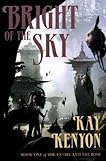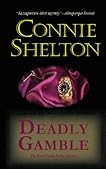I really enjoy reading books. I'm usually reading two or three books at a time. You'd think my house would be overflowing in books. But only one wall of one room has filled bookshelves. I used to have many more than that, and I also once vowed I would always buy a copy of my friends' books. There is a long shelf on my wall filled with autographed books of friends. But I couldn't keep that up; so many of my friends are writers—rather successful writers, too—that I would have gone broke in two years.
But I'm able to appease my reading habit (greatly increased in the winter months) by going to my Public Library. The "New Books" shelves are where I start browsing. Every week I'm there, returning five or six books and borrowing six or seven more. I recently came across mention of a title online that I thought I'd enjoy. My library didn't have it. BUT, they ordered it for me on Interlibrary Loan. No charge. I used that service quite a bit when I was doing research for a science book I wrote. I borrowed books from Portland and Chicago, from military libraries and universities.
Our local library foundation is oldest in the state, dating back to the mid-19th Century—one of the first libraries West of the Mississippi; the building that holds it now is much newer and was recently updated. The library fills other of my needs, too, with lectures, workshops, visiting authors and more.
When I was a kid, the town library was a Carnegie Library--an impressive place with a Greek colonnade at the front doors. I remember the doors as being massive, although I'm sure that's a trick of time. Inside the floors were marble tile; I think of the whole building as one big room with the ceilings fifteen feet or more high. In cavernous spaces like that sound bounces around and intensifies. No wonder librarians have the "shhh" reputation.
The Carnegie Library concept really made books accessible to more people, but back in the early twentieth century when Andrew Carnegie opened one of his libraries in Pittsburgh (his home city), many authors weren't too keen on the idea. According to the Carnegie site, local mystery writer, K.C. Constantine, wrote: "Any writer who sees that one copy of one his books in one library has been lent twenty-six times in one year…and knows that he was paid only one royalty check from the time the library made the original purchase knows plenty about involuntary servitude…"
I appreciate my books being in libraries. When I go to other towns and cities, I check the shelf or computer inventory to see if they have my titles. If I sold to every library in the country, that would be a nice dividend. Occasionally I find a real gem at the library, a book I read and am so taken with that I BUY THE BOOK.
Now, with the eBook evolution, I admit I don’t visit as often; and this winter, when slick roads and whiteouts will make driving the 15 miles to town a treacherous proposition, I will snuggle up with my eBook reader and a steamy mug of tea, glad not to be going out.
But I won’t ever stop going to the library. I like the eBooks, and I also like holding and flipping pages of a dtBook.









 All three covers have the same setup, but with the name of the newspaper changing with the title. A Fun series.
All three covers have the same setup, but with the name of the newspaper changing with the title. A Fun series.





Great, and interesting, post.
Sue